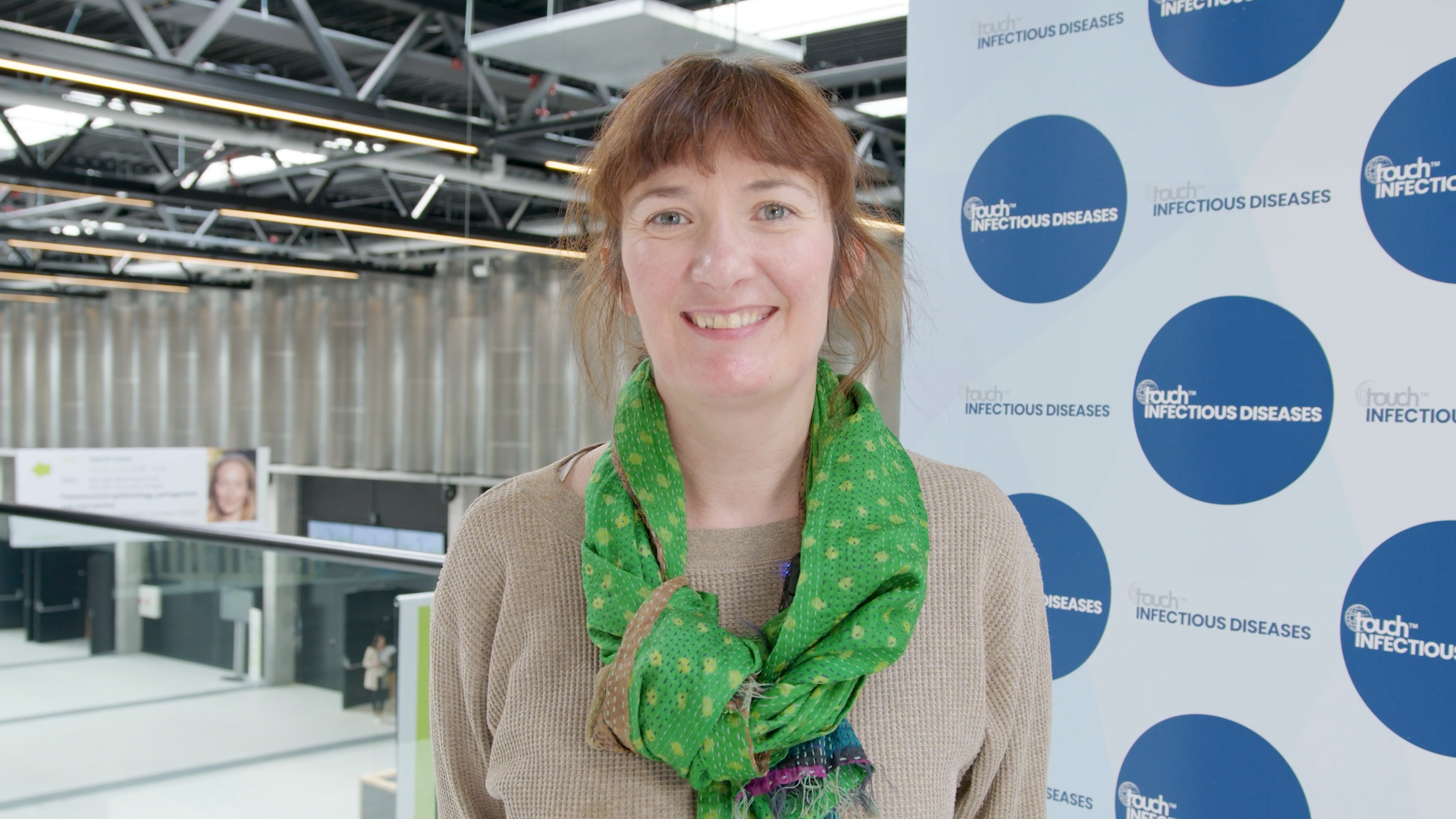In recent years clinical trials with immunomodulators for sepsis have failed to make a significant impact. The PROVIDE clinical trial (NCT03332225) investigated whether a personalized immunotherapeutic approach targeting differences in immune dysregulation phenotypes in sepsis would improve outcomes. In this interview, we spoke with Editorial Board member Prof. Evangelos Giamarellos (ATTIKON University Hospital, Athens, Greece) to learn more around the recent challenges in clinical trials with immunomodulators in sepsis, the potential of a personalized immunotherapeutic approach to treatment in sepsis could have on patient outcomes, the findings from the PROVIDE clinical trial and the future of biomarker-driven immunotherapy.
The symposia ‘Sepsis – Biomarker-driven immunotherapy: it works.‘ (Symposia number: SY137) was presented at ECCMID 2023, 15-18 April, 2023, Copenhagen, Denmark.
Questions
- What is already known about the dysregulation of the host immune response in sepsis? (0:25)
- Why have so many clinical trials with immunomodulators in sepsis failed? (1:38)
- How would a personalized immunotherapeutic approach to treatment improve patient outcomes? (2:43)
- Could you give us a brief overview of the PROVIDE clinical trial? (3:23)
- What were the findings in terms of rapid classification of sepsis and how can these classifications be used as biomarkers for treatment? (4:27)
Disclosures: Evangelos Giamarellos discloses consulting for: Abbott, UCB, and Sobi; receiving grant/ research support from: Abbott, AbbVie, Sobi, and BioMerieux; and receiving honoraria from: Sobi, Abbott, and ThermoFisher.
Support: Interview and filming supported by Touch Medical Media Ltd. Interview conducted by Katey Gabrysch and Victoria Jones.
Filmed in coverage of the 33rd European Congress of Clinical Microbiology & Infectious Diseases.
Click here for more content on sepsis & for further ECCMID 2023 highlights visit here.
Transcript
My name is Evangelos Giamarellos. I’m working as Professor of Internal Medicine and Infectious Diseases at the University of Athens. I’m also chairing the Master Class of Infectious Diseases at the University of Athens, and I’m the current chairman of the European Sepsis Alliance.
What is already known about the dysregulation of the host immune response in sepsis? (0:25)
Well, what we know so far is that in terms of the immune function of a patient who’s already on a state of sepsis, we can discriminate three states of activity. The first are patients who are hyperinflammatory. This means that they present with Hyper inflammation, but they stay at this hyper inflammation as the time goes on until their final outcome. This is roughly 10% of patients with sepsis. And this state, we call that macrophage activation like another 20% of our patients who are on paralysis. They present with paralysis and the state on that condition until their final outcome. And there is an intermediate state. Patients who one day they are on hyper inflammation the next day or the next few hours they are on hyper inflammation. And this change over time takes place during the continuum of their disease.
Why have so many clinical trials with immunomodulators in sepsis failed?
Well, the reason of failure is profound. The idea was in these trials, that was and I’m actually I’m pretty concerned that it continues to be that all patients, they behave the same, that the immune function is the same. So all patients in the trials in the past they were receiving the same drug. Whereas with the classification that I mentioned to you earlier, not all patients respond to the same way with a drug. The real danger is, for instance, if you use an anti-inflammatory drug to a patient who’s already on paralysis, then you will deepen further his paralysis. And the same will happen if you use a similar strategy in proinflammatory patients. We need to know which patient should receive which drug. This concept was never elaborated in the past and that was the main reason of our past failures.
How would a personalized immunotherapeutic approach to treatment improve patient outcomes?
So this means that we need a type of biomarker, a rapid measurement. We will have the result in 15 minutes, 30 minutes, one hour at most, which can tell us, look, this is the patient who has macrophage activation like syndrome. This is the patient who has sepsis and Houston unit paralysis. This is the patient who’s an intermediate. And the biomarker can tell us this is the drug you need for the patient who is on macrophage activation syndrome. This is the drug. You are in need of for the patient who is in paralysis.
What were the findings in terms of rapid classification of sepsis and how can these classifications be used as biomarkers for treatment?
That was a phase 2b study, and actually, the idea at first was for patients who were at the stage of screening for this trial to verify and to solidify that indeed this classification may exist. So in the PROVIDE trial we developed the knowledge that indeed there are these three strata of immune activation, macrophage activation syndrome, paralysis, intermediate, and that we can use to biomarkers ferritin and HLA ADR on circulating monocytes to discriminate between these three strata. And then the idea was for patients who are on macrophage activation syndrome, let’s randomize them to treatment with standard of care and placebo and standard of care.
What is the future of biomarker-driven immunotherapy in sepsis?
So that’s the most important concept, right? We use ferritin, but not just a single measurement of severity. We want a ferritin at a concentration more than 4420 nanograms per amount to correctly classify patients the macrophage activation syndrome. And we want a combination of a ferret in less than 4420, together with a number of air molecules and monocytes, less than 5,000 to tell us who’s the patient with paralysis? The other patients that are at the intermediate stage. The good news and the real hope coming from the provide trial was that the outcome at the end of treatment of the kindra for patients who were macrophage activation syndrome was positive. I believe that we can safely predict the future. At the end of the immunoscore trial, was the municipal trial the same design as the provide trial. But now it’s even larger. It includes even patients with paralysis. This is funded by Horizon 2020. It is a large, multi-asset centric study in six European countries and patients who are on macrophage activation. They are treated either with center of care and placebo or standard of care on a camera and those on paralysis with standard of care and placebo. Or standard of care and recombinant interferon gamma



